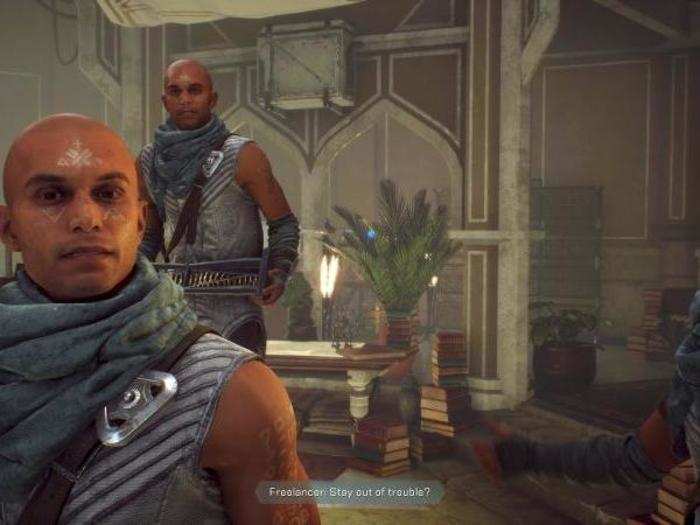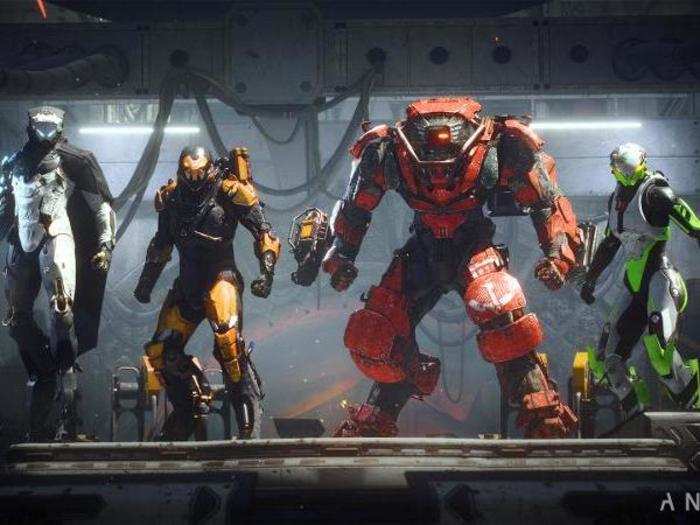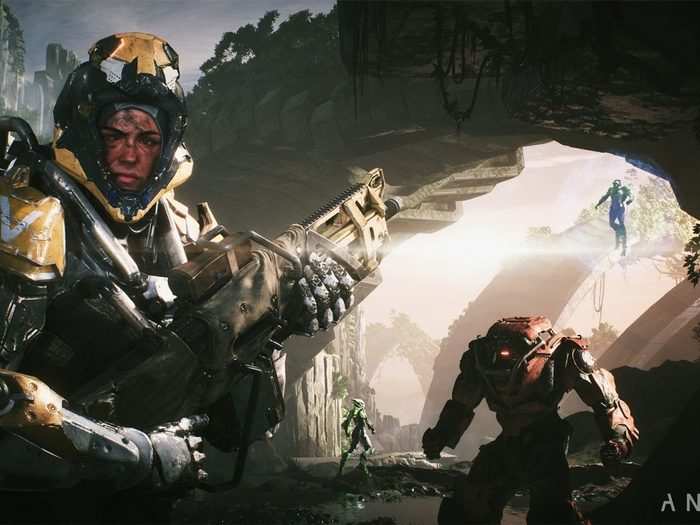Multiple BioWare employees reportedly broke down due to mental and emotional stress during development.
The technical difficulties and tight deadline eventually had an impact on morale at BioWare, Kotaku reports. Members of the creative team told Schrier anonymously that they worked long hours to the point of exhaustion on the project, and multiple team members were forced to take stress leave to alleviate the mental pressure of working on "Anthem."
BioWare is now one of several video game studios accused of implementing crunch time management tactics, which overwork employees to meet internal deadlines.
"One former BioWare developer told me they would frequently find a private room in the office, shut the door, and just cry," Schrier reports.
BioWare responded to the claims about crunch time, and defended employees named in the report.
BioWare issued a follow-up statement addressing the crunch practices and defended members of company leadership that were identified in the Kotaku report. The company said that overwork wasn't a major area of feedback in internal surveys after "Anthem's" release, but avoiding crunch is still a priority.
"We hear the criticisms that were raised by the people in the piece today, and we’re looking at that alongside feedback that we receive in our internal team surveys. We put a lot of focus on better planning to avoid 'crunch time,' and it was not a major topic of feedback in our internal postmortems," BioWare's statement read. "Making games, especially new IP, will always be one of the hardest entertainment challenges. We do everything we can to try and make it healthy and stress-free, but we also know there is always room to improve."
In an internal statement sent to BioWare employees, General Manager Casey Hudson expressed concern about individual members of leadership being singled out for public criticism. He said the company will implement changes to offer a better vision of the company's direction and individual employee roles.
Part of what interested me about returning to BioWare was the challenge of building a new leadership team around solving precisely these problems. We have more to do, but creating a happy and rewarding work environment remains our top priority.
— Casey Hudson (@CaseyDHudson)
April 4, 2019
The ongoing stories about stress and overwork in the video game industry indicate a cultural problem.
The investigative report into the conditions at BioWare is the latest in a string of bad news for workers in the video game industry. Last week, BioWare's parent company, Electronic Arts, laid off 350 employees. Activision Blizzard, the largest video game company in America, laid off 800 employees in February. Employees at Rockstar Games reportedly worked 100-hour weeks in crunch time to complete "Red Dead Redemption 2," the best-selling video game of 2018.
The BioWare news has encouraged more developers to share their own stories about work stress and crunch tactics, bringing more attention to cultural issues within the video game industry. In a survey of nearly 4,000 industry employees attending the Game Developers Conference, 44% said they worked for more than 40 hours a week; 47% of respondents said they felt industry workers should unionize.
I've gotten a number of messages from developers who work or worked at beloved AAA studios saying, "Replace BioWare with [my studio] and it's the same story." Which is heartbreaking. But I can't imagine anything changing unless we keep reporting and talking about these stories.
— Jason Schreier (@jasonschreier)
April 3, 2019



